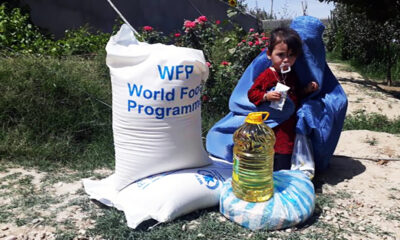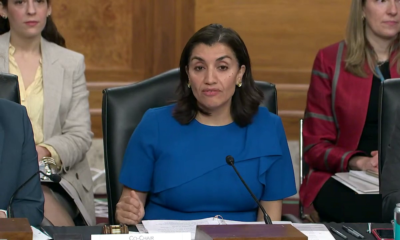Business
ADB’s governors approve ADB’s financial statements
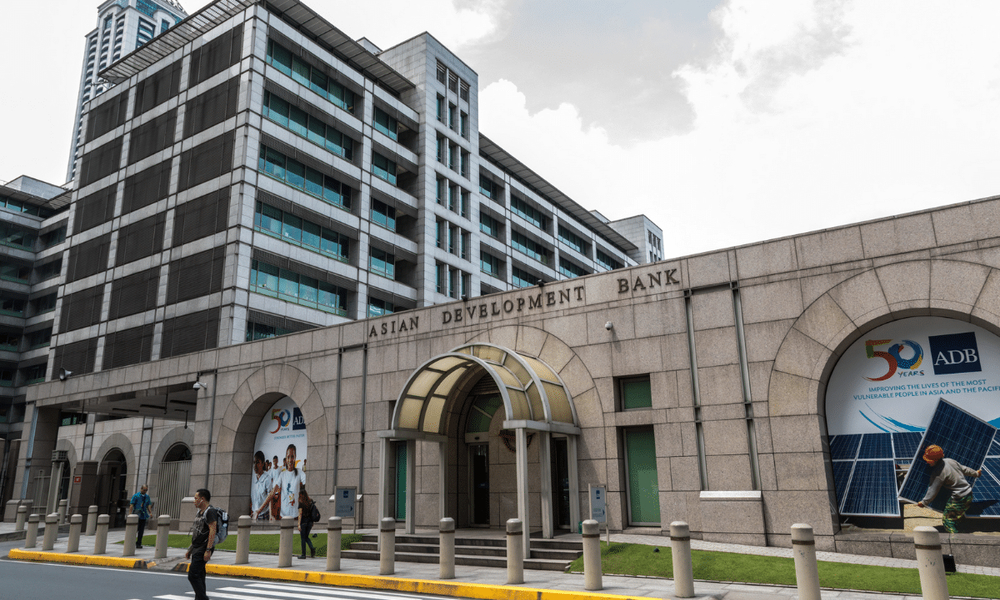
The Board of Governors of the Asian Development Bank approved ADB’s financial statements in its first-ever virtual Annual Meeting.
ADB on its official website wrote that its Board of Governors had approved ADB’s financial statements and the allocation of its 2019 net income in the Annual Meeting today.
The annual meeting took place through video conferencing (VTC) Friday amid the COVID19 pandemic.
In his remarks to the meeting, ADB President Masatsugu Asakawa said, “Our immediate priority is to provide vital support to developing member countries as they confront the COVID19 pandemic and return their economies to a path of sustainable growth,”
“Your approval today of the financial statements and allocation of net income ensure that we have the tools and financial stability to address the enormous challenges that now affect the lives and economies of millions of people across our region,” he added.
The Chair of the Board of Governors said, “Our choices and efforts today will determine whether we can overcome the current health care and economic crises.”
He added, “The ADB should turn this crisis into an opportunity while enhancing knowledge sharing on COVID-19 policy responses and expanding support for low-income countries and vulnerable groups.”
The Board of Governors adopted a resolution to allocate $1.069 billion of net income from ADB’s 2019 ordinary capital resources.
The allocable net income will be distributed as follows:
- $615.7 million to support ADB’s capital adequacy to generate net income,
- $259.5 million to the Asian Development Fund, which provides grants to ADB’s low-income member countries,
- $130 million to the Technical Assistance Special Fund, which includes support to respond to the COVID19 pandemic,
- $30 million to the Regional Cooperation and Integration Fund,
- $24 million to the Climate Change Fund, and
- $10 million to the Asia Pacific Disaster Response Fund.
ADB is actively supporting its members as they address the effects of COVID-19 through its $20 billion response package announced on 13 April.
Business
Gold bolts past $3,200 on dollar slide, safe-haven flows

Gold prices breached the key $3,200/oz level for the first time on Friday, fuelled by a weaker dollar and an escalating trade war that sent investors rushing toward safe-haven assets.
Spot gold was up 1.4% at $3,217.78 an ounce as of 0350 GMT. Bullion scaled an all-time peak of $3,219.84 earlier in the session, and has gained almost 6% this week, Reuters reported.
U.S. gold futures climbed 1.9% to $3,237.50.
“The rapid weakening of the U.S. dollar seems to be the main driver of gold’s rebound at the moment. That seems to reflect an ongoing exodus from USD-based assets, with stocks and bonds’ selloff amid tariff policy uncertainty,” said Ilya Spivak, head of global macro at Tastylive.
The dollar was down nearly 1% against its major peers, making greenback-priced bullion cheaper for overseas buyers.
Major stock indexes also fell after U.S. President Donald Trump ratcheted up tariffs on Chinese imports to 145%, but hit a 90-day pause on previously announced tariffs for dozens of countries.
China has been matching Trump’s tariff hikes, sparking fears that Beijing could push duties on the U.S. beyond the current 84%.
“$3,500 is the next round number people will be looking at. I suspect we won’t get there immediately or without bumps along the way,” Capital.com’s financial market analyst Kyle Rodda said.
Apart from tariffs, central bank demand, expectations of interest rate cuts by the Federal Reserve, geopolitical instability in the Middle East and Europe, and increased flows into gold-backed exchange-traded funds also fuelled the metal’s rally this year.
U.S. consumer prices fell unexpectedly in March but inflation risks are tilted to the upside, data showed.
Traders now bet that the Fed will resume cutting rates in June and probably reduce by a full percentage point by the end of 2025.
Spot silver added 0.3% to $31.29 an ounce, while platinum dipped 0.1% to $936.85. Palladium gained 0.8% to $916.18.
Business
Russia, Uzbekistan to draft feasibility study for Trans-Afghan Railway project
A discussion session will be held within the framework of the Russia-Islamic World Forum in Kazan in May, bringing together key stakeholders
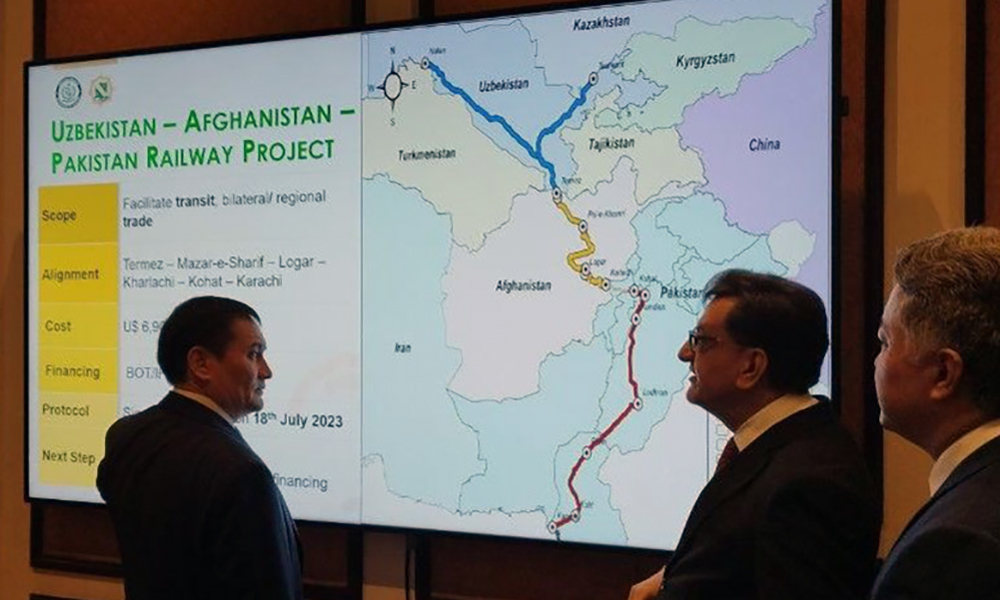
Russia and Uzbekistan design organizations will work together this year to conduct the Trans-Afghan Railway project’s feasibility study, Trend news agency reported.
According to a statement issued by Russia’s Ministry of Transport on Tuesday, Russian and Uzbek designers “will ensure the preparation of sections of the feasibility study for the project to build the Trans-Afghan Railway along the agreed routes, including in terms of determining the forecast for freight traffic volumes and economic efficiency.”
The ministry said two routes have been identified. These are: Mazar-e-Sharif – Herat – Dilaram – Kandahar – Chaman; and the other is Termez – Naibabad – Logar – Kharlachi.
The statement noted that the first session to discuss the project will be held within the framework of the Russia-Islamic World Forum in Kazan in May. A delegation from Afghanistan will attend, along with representatives from Pakistan Railways.
Business
Afghanistan business sector eager to attend Kazan Halal Expo and Forum in Russia
The forum will run from May 13 to 18 and will bring together experts from Russian regions; OIC member states; and other countries
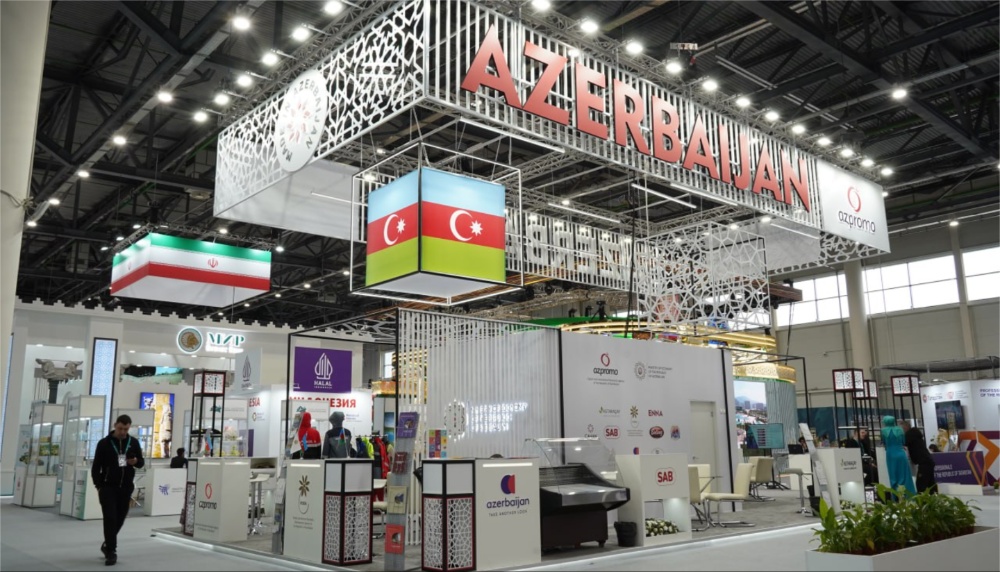
The Ministry of Industry and Commerce has confirmed that Afghanistan will participate in the XVI (16th) International Economic Forum ‘Russia — Islamic World: Kazan’ and the Kazan Halal Expo in Russia this year.
The forum will run from May 13 to 18 and will bring together experts from Russian regions; the Organization of Islamic Cooperation (OIC) member states; and other countries to discuss various topics during the 120 sessions planned.
The expo meanwhile will showcase thousands of goods from around the world that meet Halal standards.
Abdul Salam Javad Akhundzada, the ministry’s spokesman, said Sunday that Minister of Industry and Commerce Nooruddin Azizi has stated that Afghanistan is ready to participate in the event and showcase Afghan products.
According to Akhundzada, Azizi has discussed the event with members of the private sector who are eager to participate.
The expo, which is held annually alongside the forum, is Russia’s largest trading platform for Muslims.
Russia’s President Vladimir Putin said in a statement on the forum and expo recently that “Russia values its traditionally friendly ties with Muslim countries. We highly appreciate their desire to pursue an independent foreign policy and increase their role in international affairs.
“Together, we stand for the formation of a democratic multipolar world order, based on the rule of law and principles of justice, free from any form of dictatorship and discrimination.
“Of course, we are also committed to expanding mutually beneficial cooperation in all areas, from trade and investment to sports and tourism,” he said.
Putin went on to say “I believe that the work of the forum will be meaningful and constructive as always and will be held in a spirit of openness and trust. It will serve to further promote the friendship and creative partnership between our countries and peoples.”
The forum will bring together experts from Russian regions, the Organization of Islamic Cooperation (OIC) member states, and other countries to discuss:
-

 Latest News5 days ago
Latest News5 days agoItaly to welcome 700 Afghan refugees for resettlement
-

 Sport5 days ago
Sport5 days agoAfghanistan’s national futsal team heads to Morocco
-

 Latest News5 days ago
Latest News5 days agoMinistry of Refugees slams neighboring countries for mistreatment and forced removals of Afghans
-

 Sport4 days ago
Sport4 days agoAfghanistan win U-19 cricket series despite rain-impacted loss to Nepal
-

 Latest News4 days ago
Latest News4 days agoPakistan expels thousands of Afghan nationals in fresh drive, says UNHCR
-

 Latest News4 days ago
Latest News4 days agoIran’s Vice President advocates stronger ties with neighbors, especially Afghanistan
-

 Regional4 days ago
Regional4 days agoUS energy secretary sees tighter sanctions on Iran without deal
-
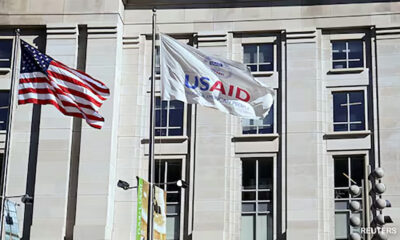
 Latest News4 days ago
Latest News4 days agoTrump administration moves to restore some terminated foreign aid programs, sources say


